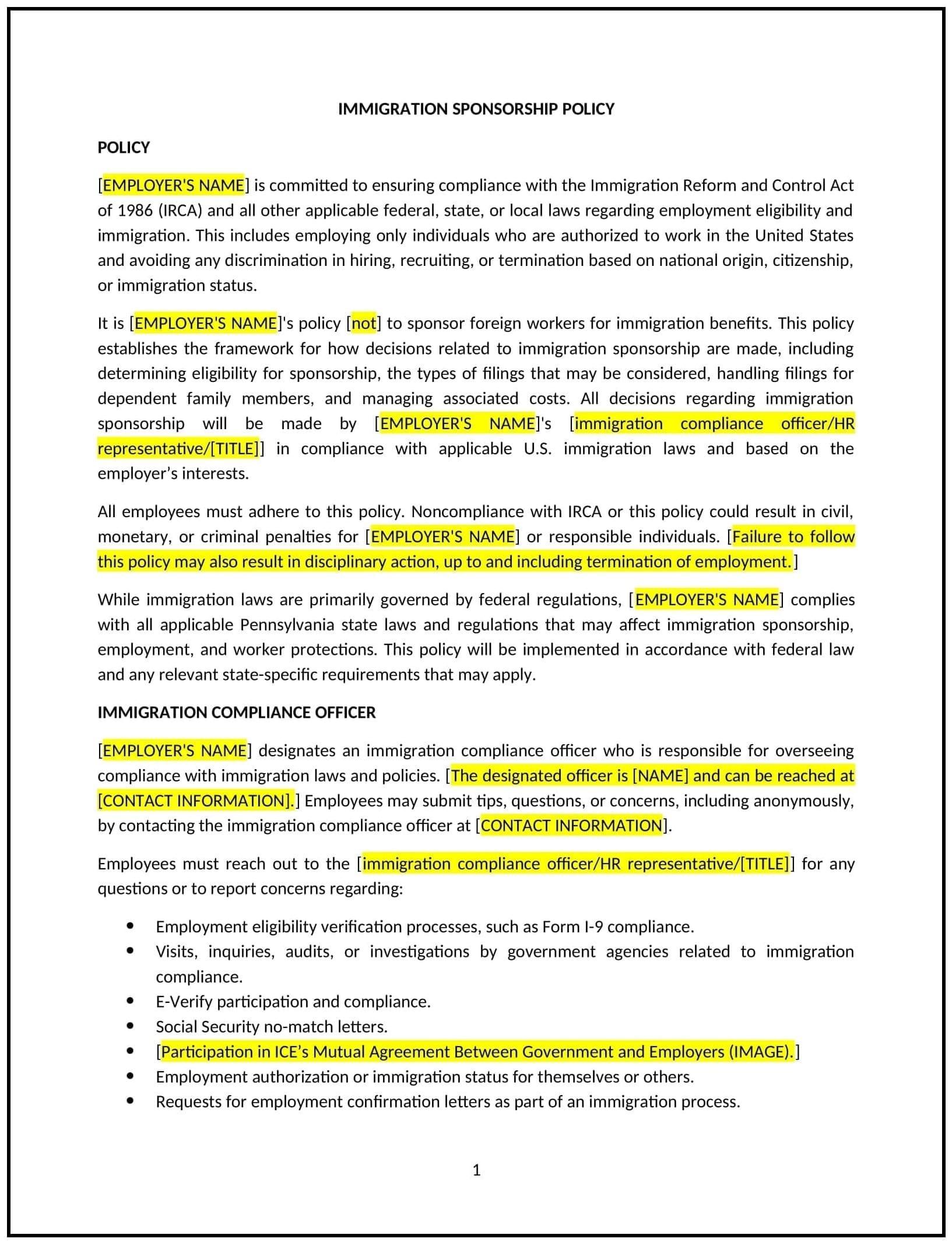Immigration sponsorship policy (Pennsylvania): Free template
Got contracts to review? While you're here for policies, let Cobrief make contract review effortless—start your free review now.

Customize this template for free
Immigration sponsorship policy (Pennsylvania)
This immigration sponsorship policy is designed to help businesses in Pennsylvania outline clear guidelines for sponsoring work visas or residency for non-citizen employees. Whether hiring international talent or supporting employees through their immigration processes, this template provides instructions for managing sponsorship while aligning with federal immigration laws and Pennsylvania-specific workforce considerations.
By using this template, businesses can support global recruitment efforts, comply with legal requirements, and foster a diverse and inclusive workplace.
How to use this immigration sponsorship policy (Pennsylvania)
- Define sponsorship eligibility: Clearly outline the types of roles eligible for immigration sponsorship and the criteria employees must meet.
- Specify sponsorship types: Include the types of visas or residency programs the business is willing to sponsor, such as H-1B, L-1, or employment-based green cards.
- Detail responsibilities: Identify the roles and responsibilities of the employee, employer, and any external immigration attorneys or consultants involved in the process.
- Include cost guidelines: Specify which immigration-related costs will be covered by the employer and which are the employee’s responsibility.
- Reflect Pennsylvania-specific considerations: Tailor the policy to address local industry needs and workforce trends, such as supporting immigrant employees in industries like healthcare or technology.
Benefits of using an immigration sponsorship policy (Pennsylvania)
A well-structured immigration sponsorship policy supports recruitment and compliance. Here's how it helps:
- Enhances recruitment: Attracts top international talent by providing clear sponsorship guidelines.
- Encourages transparency: Outlines the responsibilities of both the business and employees to avoid misunderstandings.
- Supports compliance: Ensures adherence to federal immigration laws and Pennsylvania labor regulations, reducing legal risks.
- Promotes diversity: Fosters a globally diverse workforce, enhancing innovation and workplace culture.
- Aligns with local needs: Addresses Pennsylvania’s industry-specific workforce demands, such as technology, manufacturing, or education.
Tips for using an immigration sponsorship policy (Pennsylvania)
- Communicate the policy: Share the policy with employees during recruitment or onboarding to ensure understanding of sponsorship options and processes.
- Use experienced legal counsel: Partner with immigration attorneys or consultants to navigate complex immigration laws and procedures.
- Monitor deadlines: Keep track of visa application and renewal deadlines to ensure timely submissions and compliance.
- Support transitioning employees: Provide resources to help employees adjust to working and living in Pennsylvania, such as relocation assistance or cultural integration programs.
- Review periodically: Update the policy to reflect changes in immigration laws, Pennsylvania workforce needs, or organizational goals.